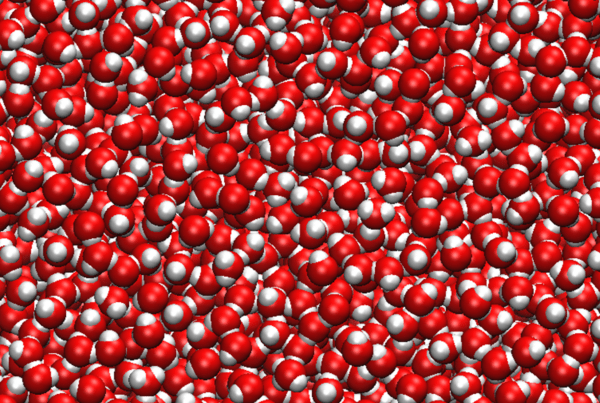From January to March of this year, five Oak Ridge National Laboratory (ORNL) staff members from the National Center for Computational Sciences served as mentors in the 2022 Winter Classic Invitational Student Cluster Competition. The virtual competition brought in twelve student teams from across the country to work on applications and compute resources provided by the mentor organizations—the Oak Ridge Leadership Computing Facility, Hewlett Packard Enterprise, Amazon Web Services, and NASA.
The ORNL mentor team was led by System Acceptance & User Environment Group Leader Verónica Melesse Vergara and High-Performance Computing (HPC) Engineer Dan Dietz, who handled the logistics and the resources needed for the competition. Joining them were HPC Engineers Tom Papatheodore and Suzanne Parete-Koon who presented the OLCF’s HPC Crash Course, which is a multi-hour introduction to core concepts and skills in HPC. Rounding out the team was Antigoni Georgiadou, an applied mathematician who provided an astrophysics-based AI task for the computing challenge, which contributed to each team’s score in the competition.
 A newcomer shakes things up
A newcomer shakes things up
Student cluster competitions have been offered for over a decade to introduce students to HPC. The premiere competitions are hosted annually by the International Conference for High Performance Computing, Networking, Storage, and Analysis (SC), the and the Asia Supercomputer Community. These competitions are typically short, concentrated, in-person events in which the student teams partner with computing vendors to source and build their own cluster. The teams then work with mentors to tackle multiple HPC challenges and prove the performance capability of their machine.
The Winter Classic Invitational Student Cluster Competition is a newcomer in the world of cluster competitions. It debuted last year, and although it shares similarities with existing competitions, the event is unique in several important ways. First, the competition is entirely virtual and takes place over 2 months with teams spending a week working with each mentor organization to solve a new challenge—all while balancing schoolwork, jobs, and other extracurriculars.
“This competition was unique because, being all virtual, students could participate from where they were,” said Melesse Vergara. “It makes it a more inclusive event.”
Second, the students are not responsible for building their own clusters. Instead, the teams’ mentors provide access to their institutions’ computing resources, a format that levels the playing field. Finally, the Winter Classic Invitational specifically seeks out teams from Historically Black Universities and Colleges and Hispanic Serving Institutions to expand awareness of and access to HPC in underrepresented communities.
Challenging students at the scale of the universe
The extended competition format allowed the ORNL mentors to provide a more comprehensive training experience for the students. Before teams attempted the scored challenge, Papatheodore and Parete-Koon led a session of the HPC Crash Course, which is a condensed introduction to the basics of HPC that includes modules on job scheduling and programming as well as hands-on challenges that students ran on Ascent, the 18-node standalone training system with the same architecture and design as the Summit IBM AC922 supercomputer.

A node from the IBM AC922 supercomputer Summit. Students used an 18-node standalone system called Ascent, which has the same architecture and design as Summit, during the competition.
“What we hoped was that the students would take our crash course, and they’d be able to hit the ground running on the day that they got their big challenge,” said Parete-Koon. “It introduces them to a little piece of everything they would need to use Ascent to do basically any challenge that involved HPC. That was our goal—to make sure the students were just able to get there and go on day one.”
After learning the basics of HPC, the student teams turned their attention to the competition challenge set by Antigoni Georgiadou. Drawing on her experience in astrophysics and cosmology, Georgiadou provided teams with datasets from simulations of the universe and asked them to optimize and scale a machine learning model while analyzing how the model’s architecture changed the outcome. The data and problems were directly based on work Georgiadou does at ORNL.
“This application was how to use our machines and codes in the most efficient way to solve tough questions like how the universe accelerates, how the universe evolves,” explained Georgiadou. “I wanted the student teams to be exposed to an application and see how the intersection of computer science, HPC, and sciences such as cosmology can give solutions to hard problems.”
At the end of the competition, the mentors sat on a judges’ panel to hear debriefs from the student team members who reflected on their experiences and what they learned in the competition.
“The teams had to explain to a panel of computational experts what they had learned from each challenge. I thought that was really cool because learning requires that kind of synthesis. When you have to explain to me how you got that answer and why, I feel like you’re learning a whole lot more,” says Parete-Koon.
Supporting the future of HPC
Competitions have long been an important entry point into HPC for students, and the ORNL mentors emphasized the value of these events, and the Winter Classic Invitational in particular, for developing the HPC community.
“It’s beneficial for these students to come in and see the different systems,” said Papatheodore. “They get quick experience running on different systems, different kinds of problems, working with the organizations from NASA to people who are more on the open science side like we are. I would have loved to get that sort of wide experience as an undergrad.”
“I see it as a good training opportunity. It’s hard to find good HPC professionals, so I see these competitions as a good way to get students interested, get them experience, and pull them into the HPC world,” said Dietz. “My hope is they take what they learn and use it to either further their studies or start their career.”






